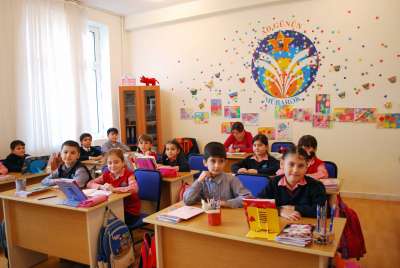9 Ways To Get Efficient In Classroom Management

What is classroom management? Classroom management refers to all kinds of activities and measures taken by teachers in order to make effective use of their time, to create a good learning environment and to reduce bad behavior. In classroom teaching, in addition to the task of "teaching", the teacher also has the task of "managing", that is, coordinating and controlling all kinds of teaching factors in order to ensure the smooth progress of teaching activities.
This post was written by our TEFL certification graduate Shufang H.
We all understand the importance of classroom management, so what can we do to effectively manage the classroom?
1. Expression control method
Teachers' facial expressions, head movements, gestures, and body movements also carry a wealth of information. It can express the warning and hint to the student, can also express the emotion such as expectation, encouragement, inquiry, doubt and so on. It can help to communicate between teachers and students and control the attention of students.
Also Read: 5 Simple Tips to Improve Your Classroom Management Skills
2. Sound control method
This is the principle that we often play in high-end low-pitched games. As the teacher moves from one speed of speech to another, the distracting attention regains its focus. Teachers attract and control the attention of students through variations in intonation, volume, rhythm, and speed.

3. Gaze method
The teacher's eye gaze can cause the related psychological effect in the students, produce or close or alienate or respect or dislike the emotion, and then affect the teaching effect. Therefore, teaching can skillfully use eyes to organize English classroom teaching. At the beginning of the class, the teacher gazed at all the students with cordial eyes to settle the students' mood and put themselves into study happily. For example, in class there is a lack of attention, teachers can use eyes to remind students to pay attention to lectures and so on.
4. Pause attraction method
The sudden silence in the noise can hold the attention of the students. Generally speaking, the pause time to three seconds or so is appropriate which is enough to draw the students' attention. We should know that the stop time should not be too long, the long pause will lead to students' attention loss.
Also Read: Where are the best places to teach English abroad?

5. Name method
In the teaching of English words or texts, teachers often use the names of characters as subjects to construct sentences or create situations to strengthen students' understanding of the words or texts they have learned. If you find that some students are distracted, do small actions, look down at other books and so on, the teacher can seize the opportunity to use the student's name as the subject sentence or create a situation. This can not only successfully complete the teaching task, increase the authenticity of English teaching, but also serve as a reminder to students, it can be said to be fun, kill two birds with one stone.
6. Gesture method
In English class, some students have poor self-control ability and will give ear to each other. Faced with this situation, teachers can use their hands to make a pause to them or press their index finger on their lips to make a quiet gesture to signal that the students will remain quiet or stop violating discipline.
7. Short rest method
After continuous practice, some students may appear the phenomenon of mental fatigue and distraction. In the face of this situation, a teacher's warning or warning to the student's long-term attention has been of no help. At this time, the teacher can play an English song, let the student relax for a while. In this way, not only eliminate students' fatigue, active classroom atmosphere, but also increase the feelings between teachers and students.
Also Read: 4 Reasons Why Using Songs in the Classroom is Important
8. Media transformation method
In classroom teaching, single teaching media is easy to cause students' fatigue and distraction, and the teaching frequency is also easily affected. Therefore, teachers should change the teaching media according to their needs, and fully mobilize the students' various senses to obtain information through the interactive use of various media, such as charts, objects, slides, movies and television, computers and so on.
9. Competition stimulation
When students' learning mood is not good, fatigue or learning enthusiasm is not high, teachers can carry out some small teaching competitions according to teaching content. Such as collective competition, group competition, individual competition, etc.

Are you ready to teach ESL students?
As a teacher, it is very important to master the necessary ability to manage the classroom. In the whole educational career, we should think and summarize in practice, be responsible for every child, and make our own contribution to national education.
Apply now & get certified to teach english abroad!
Speak with an ITTT advisor today to put together your personal plan for teaching English abroad!
Send us an email or call us toll-free at 1-800-490-0531 to speak with an ITTT advisor today.
Related Articles:
- Top 10 Qualities Every Great Teacher Should Have
- 7 Awesome Ideas for Business English Classes
- The 10 Most Common Types of EFL Teaching Jobs
- What It's Like To Teach English Online: An Online Teacher Reveals Her Secrets!
- How To Write The Perfect ESL Lesson Plan
- Getting Student Placement Right - The Best Desk Arrangements for EFL Students



